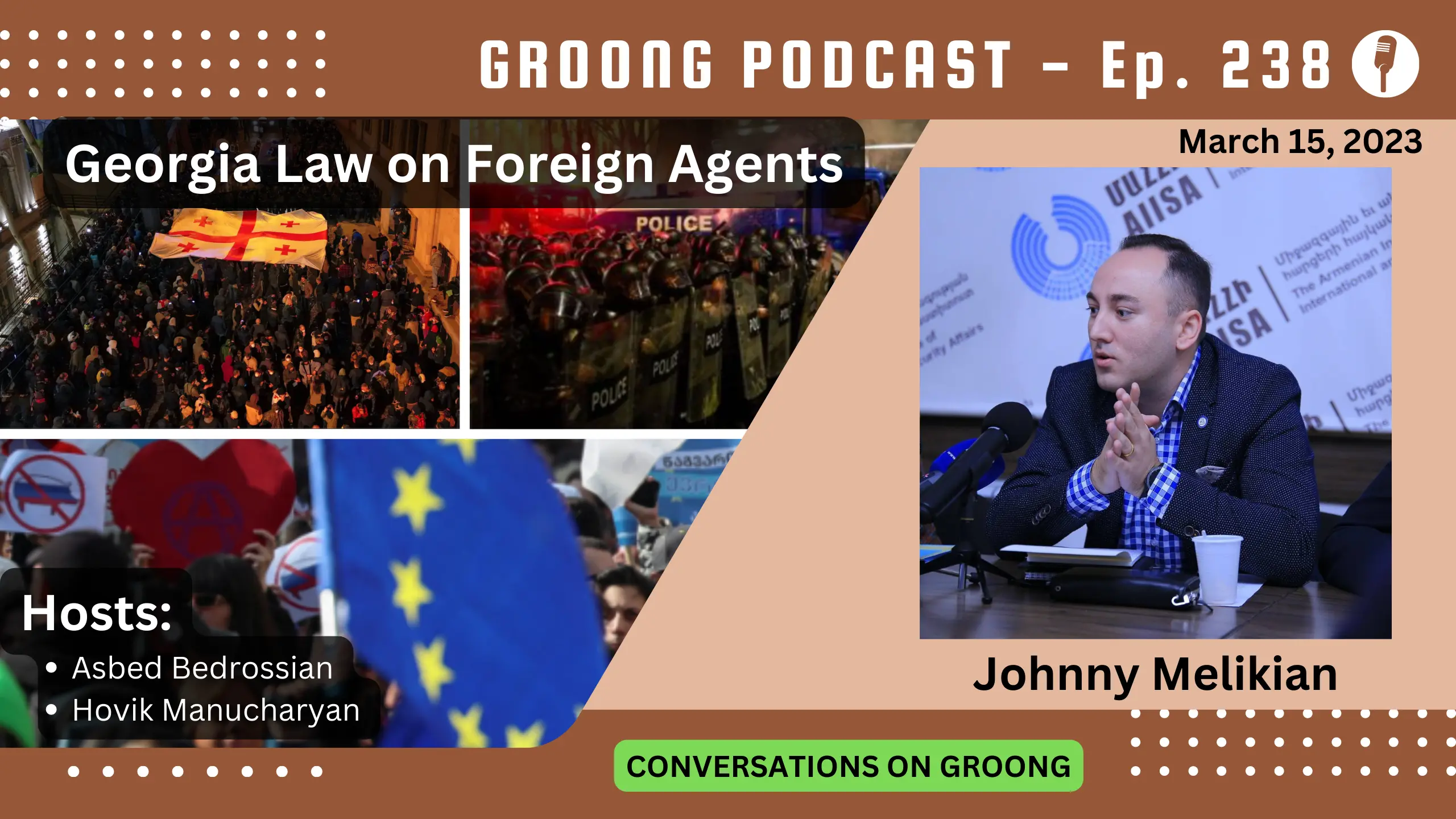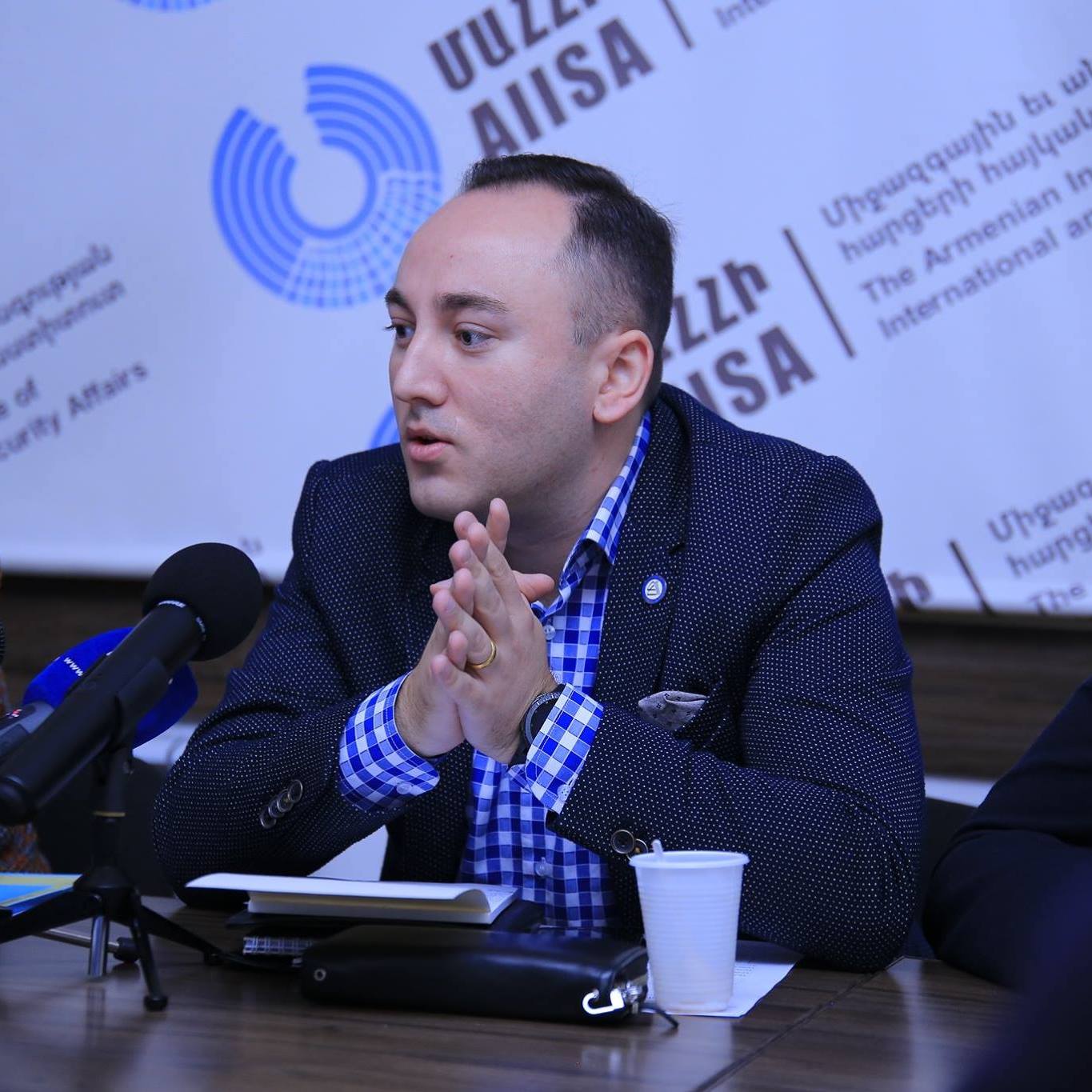
Guest:
Topics:
- On March 7, the Georgian parliament voted into law a bill that would require political actors to clarify their foreign funding sources and their activities to lobby lawmakers with such funding. This ignited large protests in Tbilisi, and on March 9 the parliament agreed to rescind the law and to release arrested opposition members. We analyze the events and the outcome.
Episode 238 | Recorded: March 15, 2023
Show Notes
Georgia Law on Foreign Agents
On March 7, the Georgian parliament voted into law one of a couple of drafts of a bill that had been circulated for the last few months. One of the bills was a near-exact translation of the US law on “Foreign Agents Registration Act”, known as FARA.
This law would require political actors to clarify their foreign funding sources and their activities to lobby lawmakers with such funding.
The bill narrowly passed with 76 out of 150 votes, and it ignited large protests in Tbilisi, and on March 9 the parliament agreed to rescind the law and to release arrested opposition members.
Protesters carried banners that this was a “Russian inspired law”, online media carried pictures of Zelensky and the flag of Ukraine. Georgia’s Prime Minister, Irakli Gharibashvili claimed that the protests were an instigation by the EU and Ukraine, possibly attempting to open a 2nd front in the Ukraine war.
Questions:
- What are the nuances of the bill that was passed, and why were the two sides so polarized about it?
- Some have chided the opponents of the bill, by saying that if such a law is acceptable to the US, or in the west, then why isn’t it also a good idea for Georgia? Opponents have said that Georgia already has laws on transparency and does not need this law. Do existing laws adequately cover what this law would do?
The main backer of the bill was the ruling Georgian Dream party, although it was initiated by a party that splintered from it, called People’s Power. The main opponents of the bill were the pro-western opposition, who were heavily supported by Western NGOs, many of whom would be targets of the law. In addition, many EU and Western officials spoke out about this. Notably, President of the European Council Charles Michel said that the “Adoption of this “foreign influence” law is not compatible with the EU path which the majority in Georgia wants.”
Questions:
- Can you explain how such a law would impede Georgia’s goal of joining the EU one day? Or is this a covert threat to Georgia?
Earlier this week we asked Hrant Mikaelian if this backdown was a victory for the Georgian opposition. He said he didn’t think it was, but it was a defeat for the ruling party.
Questions:
- Who won and who lost in this showdown?
- Is there a Saakashvili factor in this issue? What do you mean?
- Is there any credence to concerns that Georgia is being set up for another color revolution?
An op-ed in Eurasianet (another foreign entity that would be target of the law) said that: “It is time for Georgia’s democratic supporters, including democracy building institutions and foundations abroad, to rethink the failed standard of election-centered majoritarian models.”
Treatment of Protests in Western Media
The tactics used by the opposition in Georgia raised eyebrows. On live TV we saw protesters throw molotov cocktails at the police, we saw them breaking public benches in order to make improvised barricades, and flipping over cars Yet, all we heard from Western politicians were calls to the Georgian government to ensure the right of protesters to protest peacefully.
Meanwhile, there were even more peaceful protests in Moldova from the opposition that were criticized by the west, which supports the ruling government there. Of course we remember the resistance movement protests in Armenia last summer where some western representatives even criticized the Armenian opposition for being too violent, despite the protests being largely peaceful compared to Georgia.
Question:
- Why did the opposition in Georgia succeed in making the government back down, while the opposition in Armenia didn’t?
Finally:
- Is this issue closed and finished, or will it rear its head in the future?
Wrap-up
That concludes this Conversations On Groong episode**. **As always we invite your feedback, Thanks to Laura Osborn for the music on our podcasts. Don’t forget to subscribe to us on YouTube, Twitter, and Facebook.
Guests

Johnny G. Melikian
Johnny G. Melikian is a senior research fellow at the Orbeli Center for analysis, and the head of the Center for Political and Legal Studies. He has worked as a consultant for the International Crisis Group, and was a visiting fellow at Georgia’s Ilia State University
Hosts

Hovik Manucharyan
Hovik Manucharyan is an information security engineer who moved from Seattle to Armenia in 2022. He co-founded the ANN/Groong podcast in 2020 and has been a contributor to Groong News since the late 1990s.
Disclaimer: The views expressed by Hovik Manucharyan on the ANN/Groong podcast are his own and do not necessarily reflect the opinions of his employer or any other organization.

Asbed Bedrossian
Asbed is founder of the Armenian News Network Groong and co-founder of the ANN/Groong podcast.